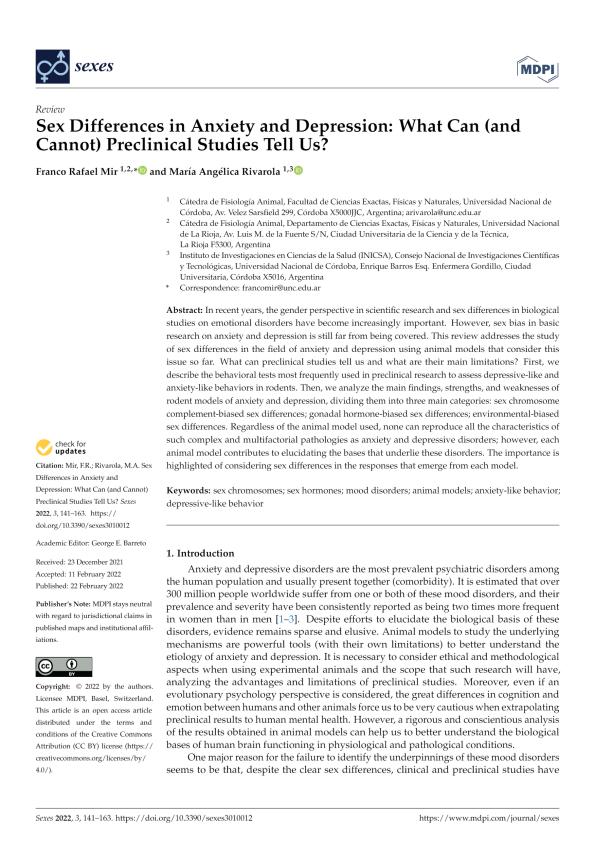Artículo
Sex Differences in Anxiety and Depression: What Can (and Cannot) Preclinical Studies Tell Us?
Fecha de publicación:
02/2022
Editorial:
MDPI
Revista:
Sexes
ISSN:
2411-5118
Idioma:
Inglés
Tipo de recurso:
Artículo publicado
Clasificación temática:
Resumen
In recent years, the gender perspective in scientific research and sex differences in biological studies on emotional disorders have become increasingly important. However, sex bias in basic research on anxiety and depression is still far from being covered. This review addresses the study of sex differences in the field of anxiety and depression using animal models that consider this issue so far. What can preclinical studies tell us and what are their main limitations? First, we describe the behavioral tests most frequently used in preclinical research to assess depressive-like and anxiety-like behaviors in rodents. Then, we analyze the main findings, strengths, and weaknesses of rodent models of anxiety and depression, dividing them into three main categories: sex chromosome complement-biased sex differences; gonadal hormone-biased sex differences; environmental-biased sex differences. Regardless of the animal model used, none can reproduce all the characteristics of such complex and multifactorial pathologies as anxiety and depressive disorders; however, each animal model contributes to elucidating the bases that underlie these disorders. The importance is highlighted of considering sex differences in the responses that emerge from each model.
Archivos asociados
Licencia
Identificadores
Colecciones
Articulos(INICSA)
Articulos de INSTITUTO DE INVESTIGACIONES EN CIENCIAS DE LA SALUD
Articulos de INSTITUTO DE INVESTIGACIONES EN CIENCIAS DE LA SALUD
Citación
Mir, Franco Rafael; Rivarola, María Angélica; Sex Differences in Anxiety and Depression: What Can (and Cannot) Preclinical Studies Tell Us?; MDPI; Sexes; 3; 1; 2-2022; 141-163
Compartir
Altmétricas




